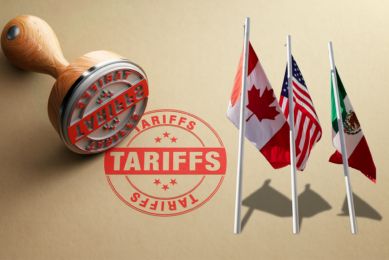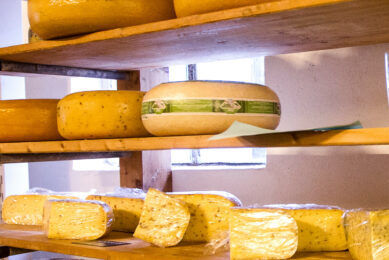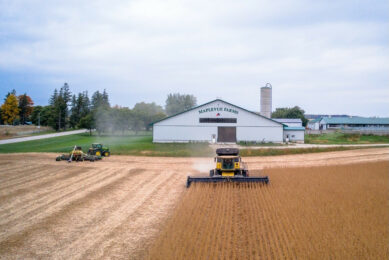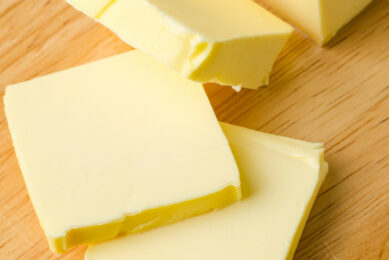Butter makes headlines in North America

As inflation roars across Canada and other countries this year, the price of butter in particular has garnered media attention. Canadian butter has now reached prices about 50% more than the prices of 4 years ago (now about €4.40), and that has made it an attractive target for thieves. Due to their value, portability and shape, bricks of butter are now nicknamed yellow gold.
In 2 cities in southern Ontario, Guelph and Brantford, there have been 9 large-scale butter thefts this year at grocery stores, reports national news agency CTV. In October, about CAD$1,200 (€810) worth of butter was stolen in the middle of the night from a Brantford store.
Scott Tracey, a spokesperson for Guelph Police Service, noted to CTV: “I’m sure it’s happening everywhere, quite frankly. There is a bit of a black market.”
Indeed, ads have appeared on social media sites selling stolen butter. There is also speculation that it’s not just being sold to the general public, but to owners of restaurants and bakeries dealing with higher ingredient, heating, labour and tax costs.
Grocery store owners are considering using more security technology and hiring guards after hours, but those added costs will only further drive up the cost of ‘yellow gold’ for consumers and make black market butter more attractive.
Not just inflation
Dr Sylvain Charlebois, director of the Agri-Food Analytics Lab at Dalhousie University in Nova Scotia, noted on social media that it’s not just inflation making butter so expensive. It’s also reportedly because dairy farmers are getting 40-50% more for butterfat. “This is why they are using palm oil to feed cows so they can produce more butterfat, and non-fat milk is [being] dumped.”
Feeding palm oil to dairy cows causes butter to be harder at room temperature, a characteristic which has received widespread media attention in Canada for several years.
Butter recall
Meanwhile, in the US, wholesale grocery retailer Costco has recalled over 79,000 pounds of its Kirkland Signature Butter because the label may have been missing an allergen alert. The US Food and Drug Administration (FDA) indicates that customers should check their Costco butter for specific product codes and dispose of those with one of the codes according to FDA instructions.
The FDA must recommend disposal because the recall is considered a “Class II” recall, where exposure to a product “may cause temporary or medical- reversible adverse health consequences”.
That is, the affected butter package labels list cream as an ingredient, “but may be missing the ‘Contains milk’ statement”, according to the FDA. Therefore, those with a milk allergy are not legally warned the product contains milk.
Many expect that the butter will be consumed and not thrown out. There is no quality or safety issue with the product, and consuming it, as is the case with all butter, does not affect those without milk allergies and who would have purchased the product in the first place.










